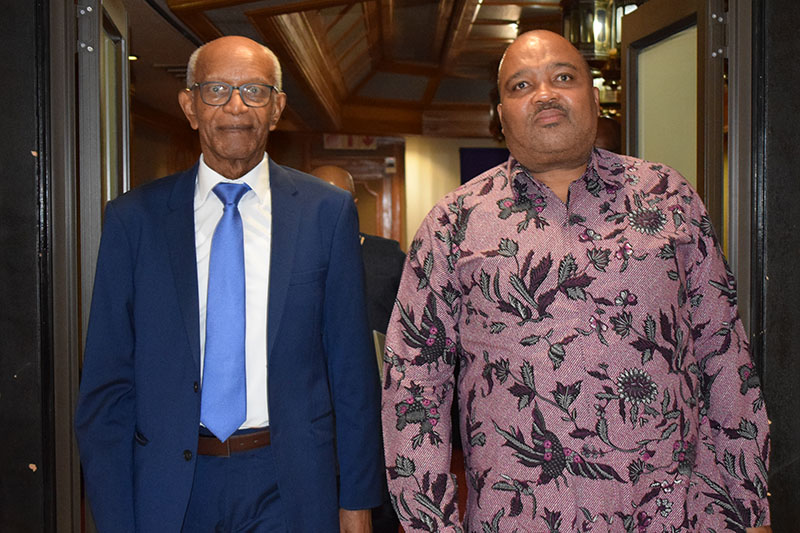One of the most influential figures in South Africa’s higher education history, Prof John William Mokone Makhene, was the guest of honour at a high-profile colloquium hosted recently by the North-West University (NWU).
The colloquium, held at the Mmabatho Palms Hotel in Mahikeng on 3 October, had the theme “Academic leadership as a catalyst for transformative change”. It was an apt reminder that visionary leadership can shape entire generations.
Prof Makhene was the founding vice-chancellor of the former University of Bophuthatswana (UNIBO), which is now part of the NWU. His principled leadership steered UNIBO through turbulent times, enabling the institution to make its mark as a repository of African academic excellence.
Laying intellectual foundations
For NWU vice-chancellor and principal Prof Mzubanzi Bismark Tyobeka, the event was a celebration of the intellectual foundations on which today’s university stands.
“Sir Isaac Newton once remarked, ‘If I have seen further, it is by standing on the shoulders of giants.’ We are privileged and honoured to have one of those giants here today,” he said. “Prof Makhene remains a pioneer and a leader who transformed obstacles into pathways, enabling all of us to advance and prosper.”
Prof Tyobeka further reflected on the profound impact of Prof Makhene’s work on the university’s present and future. “For the NWU, Prof Makhene’s influence is not only a matter of memory, it is a living inheritance,” he said. “He saw the university as a family, bound together in pursuit of truth, justice and progress. That vision continues to bind us today, compelling us to press forward and carry his legacy.”
African academic excellence
Prof Makhene’s leadership journey began the vision of building “a unique institution that functioned in an African setting while maintaining academic excellence”.
Despite opposition from traditional universities and the political authorities, he spearheaded the introduction of pioneering academic programmes, such as communication studies and development studies.
It was this courage under pressure that Prof Simeon Taole, speaking on behalf of former staff members, highlighted in his tribute.
“Leadership is tested most when values are challenged,” he said. “Perhaps the strongest example was when political authorities objected to the inclusion of communism in the development studies curriculum and wanted communist literature banned. Under Prof Makhene’s guidance, the university stood firm and succeeded in keeping the curriculum unchanged. That was ethical leadership at its finest, protecting academic freedom despite political risks.”
Prof Sipho Seepe, speaking on behalf of former students, described Prof Makhene as a leader who “did more than teach; he transformed lives”. For many who studied under him, Prof Makhene’s belief in the power of education to drive social change was not merely theoretical; it was a lived experience.
Arming countless young people with education
Prof Tyobeka reminded the guests of the famous quote by former President Nelson Mandela that “education is the most powerful weapon which you can use to change the world”.
This principle defined Prof Makhene’s leadership, Prof Tyobeka said. “He armed countless young people with this weapon, equipping them to change their families, their communities and this country. His leadership is still visible in the thousands of lives he touched and the institution he built.”
Prof Makhene also understood that the success of a university depended on its people. He personally oversaw the recruitment of staff, ensuring every appointment reflected the university’s ethos. “As a young man, I dreamt of helping people unfold their potential,” he reflected at the colloquium. “At the university, I wanted to achieve that within the framework of academic excellence in Southern Africa.”

Prof John Makhene and Prof Bismark Tyobeka
